- Home
- Barry Eisler
Hard Rain Page 25
Hard Rain Read online
Page 25
He nodded. “Yes, we saw him coming and going several times with a Yukiko Nohara. She works at a club in Nogizaka called Damask Rose.”
I thought for a few minutes. My gut told me he was being straight. But I had no way of knowing for certain. Besides, for the little he’d given me, I wasn’t going to take the kind of chances that running counter-surveillance for him could entail.
Tatsu might be interested, though. And he might be better able to use Kanezaki’s meager information than I could.
“I’ve got a meeting in a few hours with someone who can help you with your problem,” I said. “Someone who can do more than I can.”
“Does that mean you believe me?”
I looked at him. “I haven’t decided yet.”
There was a pause, then he said, “My wallet.”
I raised my eyebrows.
“Where is it?” he asked.
I chuckled. “It’s gone.”
“There were fifty thousand yen in it.”
I nodded. “Just enough for a gustation menu and an ’85 Rousseau Chambertin at a restaurant I like. I had to go out of pocket on the ’70 Vega Sicilia Unico I had with dessert, though, so next time you get it in your head to surveil me, bring along a few more yen, okay?”
He glowered. “You robbed me.”
“You’re lucky you didn’t pay a much higher price than that for trying to follow me, son. Now let’s see if the guy I’m going to see is willing to give you the assistance you want.”
I took him to Christie Tea & Cake, the kissaten that Tatsu had proposed earlier. We walked the short distance from JR Harajuku station. The proprietor, perhaps remembering me and my seating preferences from my Tokyo days, led us to one of the tables at the back of the long, L-shaped room, where we could sit hidden from the window in front.
Kanezaki ordered an Assam tea set. I asked for jasmine, both for myself and for our yet-to-arrive third party. After the day we’d just had, I figured Tatsu and I could use something low-caffeine.
We made small talk while we waited for Tatsu. Kanezaki was surprisingly garrulous, perhaps out of nervousness at his circumstances. “How did you get into this business?” I asked him.
“I’m third-generation American Japanese,” he told me. “Sansei. My parents speak Japanese, but they used English at home with me so I only learned what I picked up from my grandparents. In college I did a home-stay program in Japan, in Nagano-ken, and I loved it. Kind of put me in touch with my heritage, you know? After that, I took all the Japanese courses I could and did another home stay. During my senior year, I met a CIA recruiter on campus. He told me the Agency was looking for people with hard language skills—Japanese, Chinese, Korean, Arabic. I figured what the hell. I took the tests, passed a background check, and here I am.”
“Has the job met your expectations?” I asked, with a small smile.
“Not exactly. But I can roll with the punches. I might be tougher than you think, you know.”
I thought of his surprising lack of fear during our initial encounter, the way he’d collected himself after watching me take out his partner, and wasn’t inclined to disagree.
“Anyway,” he went on, “the main thing is that the job puts me in a position to serve the interests of both countries. That’s what really attracted me to it in the first place.”
“How do you mean?”
“The U.S. wants Japan to reform. And Japan needs to reform, but lacks the internal resources to do it. So gaiatsu from the U.S. is in both countries’ interests.”
Gaiatsu means “foreign pressure.” I wondered briefly whether there was a country outside Japan that had a dedicated word for the concept.
“Sounds idealistic,” I said, probably failing to hide my dubiousness.
He shrugged. “Maybe. But we’re one world now. If Japan’s economy sinks, it’ll drag the U.S. down with it. So U.S. ideals and U.S. pragmatism on the one hand, and Japanese needs on the other, are all aligned. I feel lucky to be in a position to work for the countries’ mutual welfare.”
I had a brief image of this kid ten years from now, running for office. “You given any thought to what you’ll do if you ever have to choose?” I asked him.
He looked at me. “I’m American.”
I nodded. “Then as long as America lives up to her ideals, you ought to be fine.”
The waiter brought our tea. A moment later Tatsu appeared. If he was surprised to see me with Kanezaki, he didn’t show it. Tatsu has a great poker face.
Kanezaki looked at me, then at Tatsu. “Ishikura-san,” he said, half-rising out of his seat.
Tatsu bowed his head in greeting.
“You told us he was dead,” Kanezaki said, inclining his head toward me.
Tatsu shrugged. “At the time, I believed he was.”
“Why didn’t you get in touch when you learned he wasn’t?”
I saw a trace of amusement in Tatsu’s eyes at this kid’s straightforwardness, and he said, “Something tells me it was fortunate that I did not.”
Kanezaki furrowed his brow, then nodded. “That may be true.”
I looked at Kanezaki. “Tell him what you told me,” I said.
He did. When he was done, Tatsu said, “It seems the most likely explanation for this unusual chain of events is that Station Chief Biddle or someone else in the CIA is preparing to turn you into a twenty-first century Oliver North.”
“Oliver North?” Kanezaki asked.
“Yes,” Tatsu went on, “from the Iran–Contra scandal. The Reagan administration had decided to circumvent a congressional ban on funds to the Nicaraguan contras by selling arms to Iranian ‘moderates’ and channeling the resulting proceeds to the contras without Congress’s knowledge. Oliver North was a National Security Council staffer who ran the program day to day. When the program leaked, his betters in the NSC and the White House blamed him, as a way of escaping prosecution, for having instigated and run the program without their knowledge.”
Kanezaki paled. “I hadn’t thought about it that way,” he said, looking from left to right as though trying to rediscover his bearings. “Oh man, oh man, you’re right, this really could be like Iran–Contra. I don’t know who dreamed up Crepuscular in the first place, but someone terminated it, maybe Langley, or the NSC, or maybe even the Senate Select Committee on Intelligence. And now Tokyo Station is still running it, I’m still running it, with funds from some source outside of Congress’s purview. Oh man, oh man.”
I had a feeling he was imagining himself getting sworn in before some special congressional committee established to investigate the latest scandal, sitting alone, his hand raised, the congressmen and their staffers prim and hypocritical behind their polished wooden dais, the video camera lights hot and blinding, while his superiors clucked their tongues and leaked to the press about the talented young CIA officer whose overly strong convictions had made him turn rogue.
Tatsu turned to me. “I have something for you.”
I raised my eyebrows.
“Kawamura Midori. It seems that, in her zeal to locate you, she retained a Japanese private investigative firm. Many of these firms are staffed with ex-Keisatuscho and other law enforcement officials, and I have contacts among several. She knew where your friend lived and gave the firm his address. They attempted to follow him, but apparently were unable to do so because he was surveillance conscious. They did not learn your whereabouts. I believe this is why Kawamura-san came to my office recently with threats of a scandal. Her other means of locating you had not proven useful.”
She must have been using an inheritance from her old man—the fruits of the corruption that had enriched him and disgusted her. There was some irony there.
I thought of the way she had seemed evasive at the Imperial. Now I knew why. She’d hired a PI to tail Harry and didn’t want to tell me.
“These PI firms,” I said. “Are any of them connected to Yamaoto?”
“Doubtless.”
“That’s why he put Yukiko o
n Harry,” I said, finally seeing it. “It wasn’t the Agency’s request—they didn’t tell him Harry was connected to me. It was Midori’s PI people. She would have told them that they were following Harry to find me. When that information got back to Yamaoto, he wanted his own coverage—better coverage than the PI firm, or even the Agency, would be capable of. Her job was to stay close, really close, and learn as much as she could to help them get to me.”
I pictured it. Yamaoto, probably through intermediaries, got Harry’s boss to take Harry out to “celebrate” about that happy client. Harry’s boss wouldn’t know the purpose of all this, just where and when he was supposed to show up with Harry. Yukiko was waiting there, with a line about configuring her Macintosh and bedroom eyes behind it. Harry swallowed the whole thing without a burp. He led Yukiko and her employers straight back to his apartment, and eventually to me.
“Why kill him, though?” Kanezaki asked.
I shrugged, thinking of the way Murakami had growled Your name isn’t Arai. It’s Rain. “They’d learned who I was and knew where to find me. They didn’t need Harry anymore after that. And Yukiko would have learned about some of his skills—he was former NSA, a crack hacker. They would have viewed him as an asset of mine. Best to take him off the board.”
I thought of how deeply Harry had been in denial, how hostile he’d been to any suggestion that Yukiko might be setting him up. I sighed. “That’s probably how they found out who I was, too,” I said. “Harry and I had an argument about the girl. He probably told her he had a friend who said this and that, a friend her boss had recently taken to Damask Rose. They might have put two and two together from that. Or they might have shown the video from the club to Yamaoto, who knows my face. It doesn’t matter. Once they knew, they decided Harry had outlived his usefulness.”
There was a long silence. Then Tatsu said, “Kanezaki-san, what do you propose to do?”
Kanezaki looked at him, his expression uncertain. “Well, originally I wanted someone non-Agency to run counter-surveillance for me tonight. So I could know whether I’m being watched, or being set up, or whatever. But not you. You’re . . .”
Tatsu smiled. “I am Keisatsucho.”
“Right. It wouldn’t do to have the Japanese FBI observing a CIA meeting with a sensitive national asset.”
“I thought tonight’s meeting was fictitious, designed to test your theory that someone wishes your assets ill.”
“It is fictitious. But I’ve filled out paperwork saying that it’s real. If I get caught with you, the consequences will be the same.”
Tatsu shrugged. “If someone sees us together, you can tell them you are developing me as an asset. Following up on the original contact you and Station Chief Biddle made when you were looking for our friend here.”
Kanezaki looked at him. “Maybe I am developing you.”
I thought, Tatsu knew you were going to say that, kid.
“You see?” Tatsu asked. “Not so far-fetched.”
I thought of an old poker players’ expression: If you look around the table and can’t spot the sucker, the sucker is you.
No one said anything for a long time. Then Kanezaki let out a long breath and said, “I can’t believe I’m doing this. I could go to jail.”
“For a meeting with a potentially important asset?” Tatsu asked, and I knew the deal was closed.
“Right,” Kanezaki said, more to himself than to anyone else. “That’s right.”
I thought of another saying I once heard: It’s easiest to sell to a salesman.
All that training in how to suborn an asset into signing a receipt. Kanezaki had practically bragged about how adroitly a good case officer could do it. And yet he’d just stepped over a line without even looking down to see if it was there.
I thought of those pictorial representations of the food chain, a fish being swallowed by a bigger fish being swallowed by an even bigger one.
I glanced at Kanezaki and thought, At least Tatsu won’t betray you. Unless he absolutely has to.
18
WE ALL DEPARTED so that Kanezaki could go to his “meeting” and Tatsu could have men run counter-surveillance for him. We agreed to meet back at Christie in two hours. I asked Tatsu before we left whether he’d managed to get another gun for me. He told me he hadn’t.
I spent a short time browsing among the antiques in the basement of the nearby Hanae Mori Building. The shops were closed, but through the windows I admired the delicate Art Nouveau cameo glassware of artists like Daum Nancy and Emile Gallé. I lost myself in the little worlds depicted on the vases and tumblers: a green meadow inhabited by hovering dragonflies; windmills slumbering under a blanket of snow; a forest of trees so sensuous they seemed to sway in their glass etchings.
I returned to Christie well in advance of our follow-up meeting, but I didn’t wait there. Instead, I checked the places that a surveillance team would use if it were interested in someone in the shop, and then, confirming that these spots were deserted, I perched like one of Tokyo’s baleful ravens in the darkness atop the incline to the right of the shop, observing its entrance. Only after I had seen Kanezaki, and then Tatsu, return, and only after I had waited to ensure that they weren’t followed, did I descend and join them.
“We’ve been waiting,” Tatsu said when I came in. “I didn’t want to start without you.”
“Sorry,” I said. “I got held up.”
He looked at me as though he understood exactly what had caused the delay, then turned to Kanezaki and said, “I took two men to observe the area around your ostensible meeting. We discovered someone who was there attempting to photograph the proceedings.”
Kanezaki’s eyes bulged. “Photograph?”
Tatsu nodded.
“What did you do?” he asked.
“We took the individual into custody.”
“Oh man,” Kanezaki said, probably imagining the headlines in tomorrow’s papers. “Official custody?”
Tatsu shook his head. “Unofficial.”
“Who is he?” Kanezaki asked.
“His name is Edmund Gretz,” Tatsu said. “He came to Tokyo three years ago, hoping to make a living as a freelance photographer, with visions of models on runways. Instead he found himself giving English lessons at various Japanese corporations. But eventually he did manage to find someone interested in his talents as a photographer.”
“The Agency?” Kanezaki asked, his complexion pale.
“Yes. He is a contractor. Six months ago he was given training in surveillance and counter-surveillance and various other clandestine arts. Since then the Agency has contacted him three times. On each occasion, he was given a time and place where a meeting was to occur, and instructed to photograph the meeting as it progressed.”
“How did he know who he was shooting?”
“He was given a photograph of an ethnic Japanese who would always be a participant.”
“Me.”
“Yes.”
I shook my head in wonder and thought, You ought to just have “fall guy” printed on your business cards.
“And Gretz’s handler . . .” Kanezaki said.
“The Station Chief,” Tatsu answered. “James Biddle.”
“The same guy who wanted the receipts,” I said.
“Yes,” Tatsu answered.
“I imagine the contractor wasn’t able to shed any light on why,” I said.
Tatsu shook his head. “Gretz is only a flunky, with some skill behind the lens. He doesn’t know anything. His biggest concern was that no one should find out that we had picked him up, lest he lose his lucrative sidework or face deportation.”
“You couldn’t get anything more out of him?” Kanezaki asked.
Tatsu shrugged. “My men did not ask nicely. I don’t believe there was anything more to be gotten.”
“What does he do with the photos after he’s taken them?” Kanezaki asked.
“He delivers the prints to Biddle,” Tatsu said.
Kanezaki
was drumming his fingers on the table. “What’s he going to do with those photos? Why would he do this to me?”
“I may have a way of finding out,” Tatsu said.
“What’s that?”
Tatsu shook his head. “Not yet. Let me make some discreet inquiries. I will contact you soon.”
Kanezaki’s eyes narrowed slightly. “Why would you help me?” he asked.
Tatsu looked at him. “I have my own reasons for wishing to avoid a scandal,” he said. “Among them, my desire that the reformers you have been trying to aid not be harmed by all this.”
Kanezaki’s expression loosened. He was scared. He wanted to believe that he had a friend. “Okay,” he said.
Kanezaki stood to go. He reached into his jacket pocket, took out a card, handed it to Tatsu. “Please, contact me as soon as you know more,” he said.
Tatsu stood, too. He gave him a card in return. “I will.”
Kanezaki said, “Thank you.”
Tatsu bowed low and said, “Kochira koso.” The same here.
Kanezaki nodded to me and walked away.
I waited a minute to allow Kanezaki to get clear, then said, “Let’s go.”
Tatsu understood. When I was a teenager, I once won a fight at a party. The guy I’d beaten left, while I enjoyed the feeling of being a hero. Trouble was, the guy returned a half-hour later, only this time with two friends. The three of them beat the crap out of me. The lesson was worth it. It taught me that, when the meeting is done, you leave, unless you want to take a chance on someone backing up on you.
We walked toward Inokashira-dori, the still darkness of Yoyogi Park to our right.
“How did it go today?” I asked as we walked. “With your man’s wife. His widow.”
Several seconds went by before he answered. “Fujimori-san,” he said, and I wasn’t sure whether he was talking about his fallen comrade or the wife. “I am fortunate to have had only three such conversations in my time with the Keisatsucho.”
We continued to walk in silence. Then I asked, “Any luck tracking Murakami today?”
He shook his head. “No.”
“The guy you interrogated?”

 All the Devils
All the Devils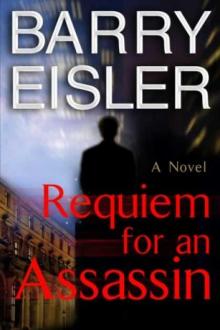 Requiem for an Assassin
Requiem for an Assassin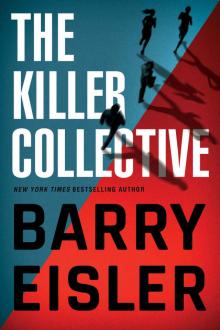 The Killer Collective
The Killer Collective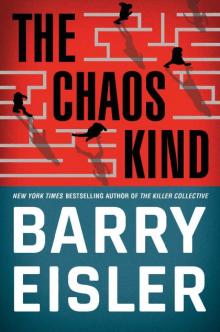 The Chaos Kind
The Chaos Kind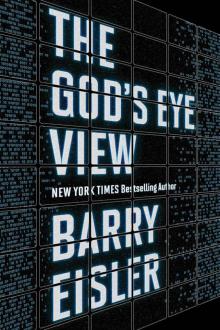 The God's Eye View
The God's Eye View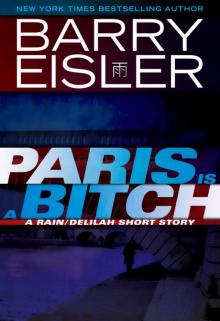 Paris is a Bitch
Paris is a Bitch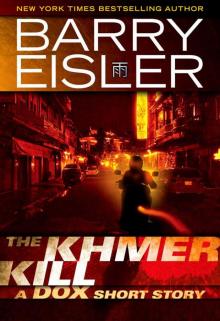 The Khmer Kill: A Dox Short Story (Kindle Single)
The Khmer Kill: A Dox Short Story (Kindle Single)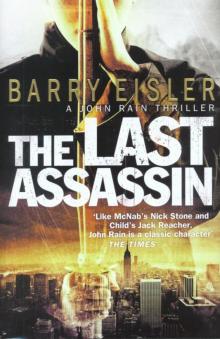 The Last Assassin
The Last Assassin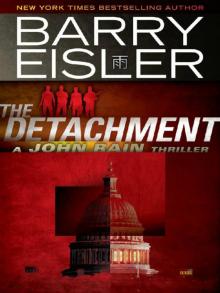 The Detachment
The Detachment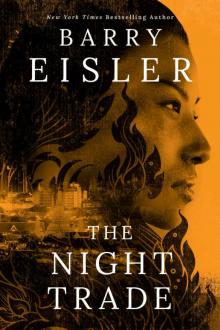 The Night Trade (A Livia Lone Novel Book 2)
The Night Trade (A Livia Lone Novel Book 2)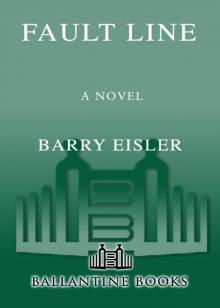 Fault Line
Fault Line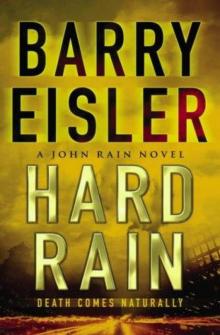 Hard Rain
Hard Rain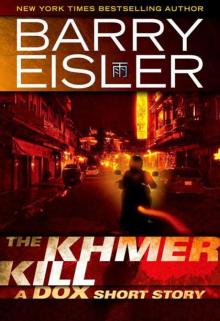 The Khmer Kill_A Dox Short Story
The Khmer Kill_A Dox Short Story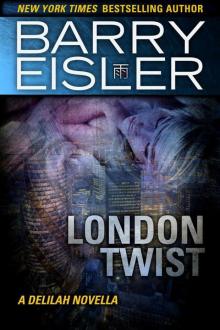 London Twist: A Delilah Novella
London Twist: A Delilah Novella The Lost Coast
The Lost Coast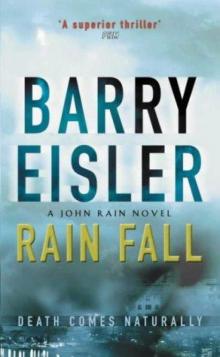 Rain Fall
Rain Fall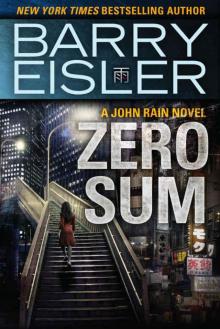 Zero Sum
Zero Sum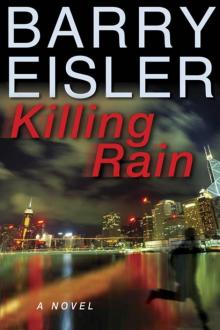 Killing Rain
Killing Rain John Rain 08: Graveyard of Memories
John Rain 08: Graveyard of Memories A Clean Kill in Tokyo (previously published as Rain Fall)
A Clean Kill in Tokyo (previously published as Rain Fall) Inside Out: A novel
Inside Out: A novel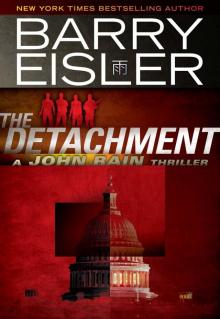 John Rain 07 - The Detachment
John Rain 07 - The Detachment Graveyard of Memories
Graveyard of Memories The Lost Coast -- A Larison Short Story
The Lost Coast -- A Larison Short Story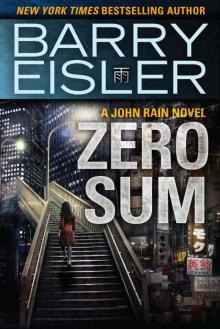 Zero Sum (A John Rain Novel)
Zero Sum (A John Rain Novel)